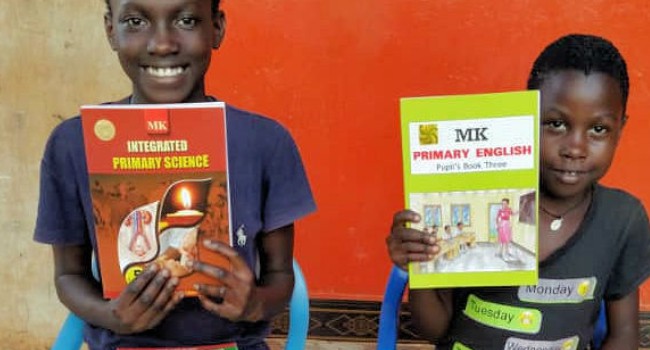Education & Health Trust Uganda: The impact of Covid-19

Lois Pollock is a client of Focused Financial and Founder of Education & Health Trust Uganda.
Over the past seven months of the Covid-19 lockdown and restrictions in the UK, I’ve been busy maintaining the work of Education & Health Trust Uganda (EHTU).
Unlike the UK, Uganda has no welfare system of any kind and according to the World Bank, about 65% of the population (around 40 million people) live on $1.90 per person per day.
At the beginning of March 2020, the President imposed one of the strictest shutdowns of any country in Africa after 33 people tested positive on their return from Dubai. Immediately the large number of people living on about $1.90 per day had their livelihoods stripped from them as markets, where many made their money selling second-hand clothing or food and the like, could no longer do so.
Civilians suffered from strict curfew hours and brutal action from overzealous police if they were seen to breach any of the rules.
With no means of earning a daily income, people began to suffer extreme food deprivation and, in some cases, starvation.
The outside world was shut out when the airports closed to all foreigners.
Universities and schools were closed, and students ordered to return to their home villages.
I began to receive reports from students supported by the Trust and in higher education, about the dire situations they found in their home villages.
A medical friend, Dr Alfred Omo, a highly skilled heart surgeon in Kampala, reported the dire situation in his home village in northern Uganda where villagers and particularly abandoned elderly, were suffering from lack of food and medical care.
Using his own limited resources, Alfred visited the home village weekly to try and offer some limited medical care and essential supplies.
He asked the Trust for help and we agreed to buy and send a Doppler machine to assist in the diagnosis of the many elderly suffering vascular problems so that he could better treat them.
Concerned by the shocking levels of food deprivation and poor nutrition he reported and supported by photographs, I began to consider along with the other trustees of EHTU, how we might provide subsistence food aid during the Uganda lockdown.
We finished up providing funding and logistical support to enable the feeding of over 140 people who were at risk of starvation between April and August when the President finally lifted many of the restrictions. I felt as if I was running a mini World Food program from my home in London!
EHTU funded one of the women’s groups from a slum in Kampala, to produce 650 face masks to distribute to families in the overcrowded conditions in which they live.
Realising that a small charity such as EHTU could not sustain the level of food support that we have quite properly done these past months, I am now far advanced in plans to collaborate with Dr Omo on a project in one village in Apac where I will work directly with the community on ways in which they can become self-sufficient.
This will be achieved through establishing small savings groups; teaching very practical skills to some of the unemployed youth and getting the youth themselves to engage with isolated old people and provide for some of their needs. For example, through digging vegetable patches outside each simple house; digging pit latrines and setting up tippy taps to provide handwashing facilities.
Alongside this, Dr Omo and I will initiate basic health and hygiene sessions to try and improve the basic health care of all the villagers.
When I leave the village, the local leadership that develops through the project inception will carry on the work.
I am anticipating travelling to Uganda in mid-December 2020 for two months work in Apac, funding my own flights and accommodation.
The project nevertheless is likely to cost in the region of £4,000 and I am currently trying to attract donations – of whatever amount – to cover the costs of resources and some equipment to ensure successful start-up of a tailoring project and a simple shoe-making project amongst other things.
I have volunteered in Uganda for the past 27 years; from my experience and past skills, I know that the way to help local people take control of their lives is through providing education and skills training and encouraging communities to develop a self-belief so that they control their own future.
If you would like to learn more or support the charity Lois can be contacted at ehtuganda@gmail.com or visit the organisation’s website here.
Request a callback
Enter your details below and a member of our team will be in touch.



